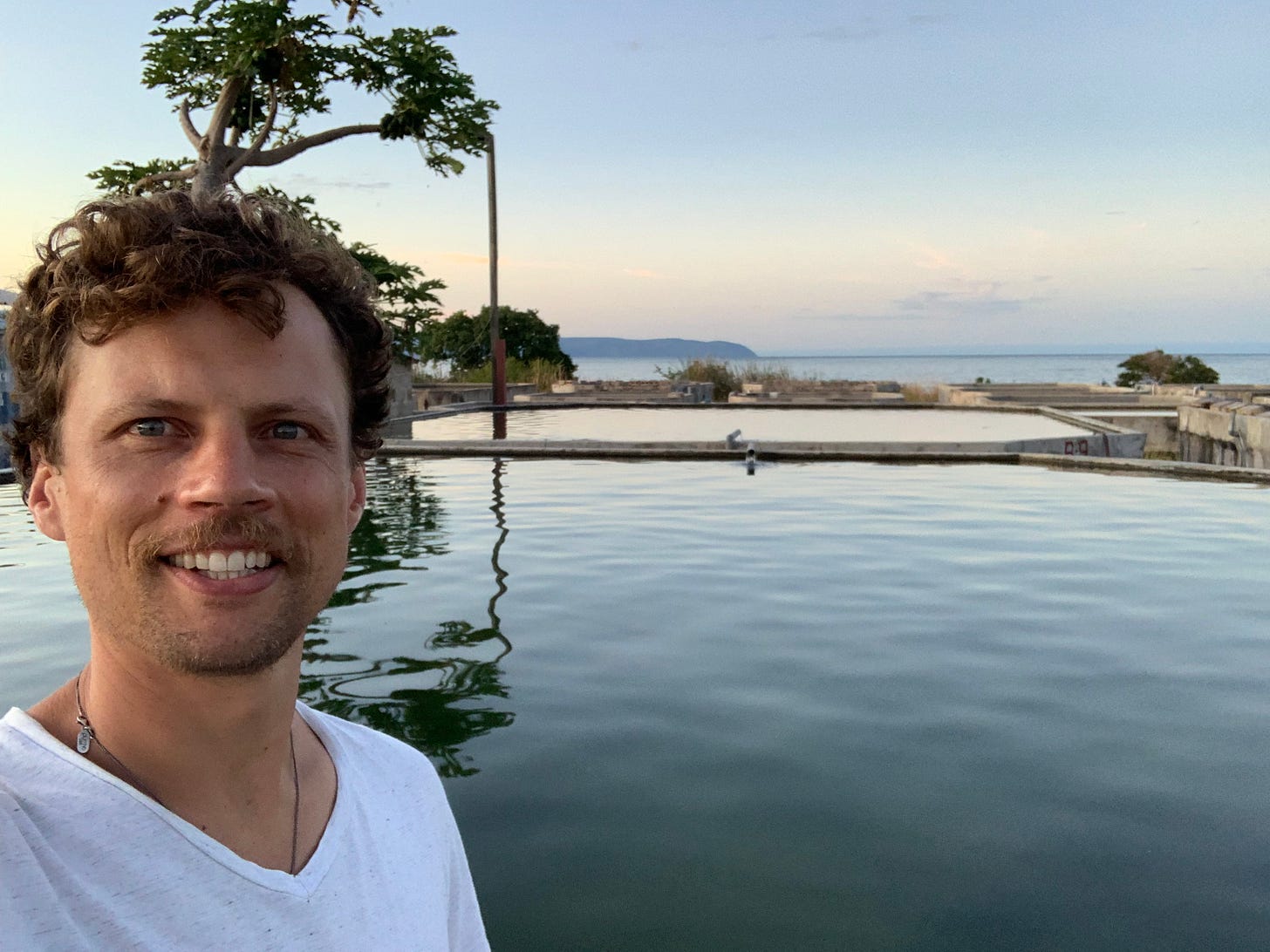Field Note Ramblings
“Life should not be a journey to the grave with the intention of arriving safely in a pretty and well preserved body, but rather to skid in broadside in a cloud of smoke, thoroughly used up, totally worn out, and loudly proclaiming "Wow! What a Ride!” Hunter S. Thompson
Welcome to Field Note Ramblings, a newsletter tracking my time in Tanzania with the fledgling agribusiness Dark Earth Carbon. Last year, I swapped a comfortable surveying job in London, U.K. for an opportunity to work with Dark Earth Carbon. The initial phase of the project was to find a suitable site in which to build a bus sized reactor that produces biochar – a carbon rich soil additive.
Fast forward a year, I’m heading back for phase two: build the biochar reactor! Whilst friends, family, and colleagues were keen to hear my initial forays into the jungle, I did a pretty poor job of keeping folks up to date. This time, I hope to provide more comprehensive updates on the project's progress through this newsletter, along with other reflections on Tanzania, agriculture, economics and more.
Carbon and Agriculture – Misfits or Mates?
Although I have always had a distant appreciation of farming and all things that grow, my interest with regenerative agriculture was sparked by the book ‘Call of the Reed Warbler,' written by fifth-generation Australian farmer and scientist, Dr. Charles Massy. What intrigued me was the idea that certain farming methods could not only yield food but also enrich and 'regenerate' ecosystems. Central to regenerative agriculture was increasing the carbon content in soils which have been depleted across the globe through industrial farming practices (a topic I’ll visit in greater detail in a future rambling).
Despite being an essential building block for life on Earth, carbon gets a bad rap. This negative perception stems from the Industrial Revolution which, whilst fuelling unparalleled advancements in human well-being, also saw levels of atmospheric carbon soar.
It would appear that carbon, then, is simply in the wrong place – there’s too much of the stuff in the atmosphere and not enough in the soils. This brings me to how Tanzania fits in…
Tanzania - Context Matters
Two friends from University have spent the last 13 years building socially minded agribusinesses in Tanzania including Upendo Honey, an organic forest honey business, and Tanganyika Blue, a sustainable aquaculture venture.
Knowing about my interest in regenerative agriculture, they reached out and introduced me to a new venture they're exploring with a Tanzanian business partner: biochar. This carbon-rich soil additive would be produced from commercial green waste that would otherwise be burned off. The biochar would be added to the soils of smallholder farmers, improving fertility, thereby increasing yields and, consequently, enhancing the livelihoods of the farmers.
Smallholder farming is significant in Tanzania; agriculture involves about 65% of the population, the majority of whom are smallholder farmers living in extreme poverty. These farmers face a host of challenges, including erratic weather and poor soil quality. Consequently, and understandably, many prioritise their immediate needs—such as earning or growing enough food to feed their families—over long-term environmental sustainability, hence the wanton burning of green waste.
The Dark Earth Carbon venture proposed a dual mission: to sequester atmospheric carbon into soil whilst improving the livelihoods of some of the world's poorest people. The mission resonated with me because it not only appealed to my value for efficiency, but also elegantly tackles the problem of misplaced carbon.
The Short Game
My immediate ambition for Field Note Ramblings extends beyond weekly updates. I hope to introduce you to concepts you may not be familiar with, or deepen your understanding of ones that you are, and inspire curiosity of your own. Through Dark Earth Carbon, I want to dismantle the notion that business, environmental sustainability and social responsibility can't coexist. I believe that when integrated properly, these elements can be greater than the sum of their parts.
The Long Game
In time, these ramblings will naturally broaden their scope to explore other ventures, ideas and concepts beyond Tanzania and Dark Earth Carbon. I’m a curious fellow, with wide interests so it’s hard to say where this will lead but for now, it’s good to have you here.
Life – What a ride!


